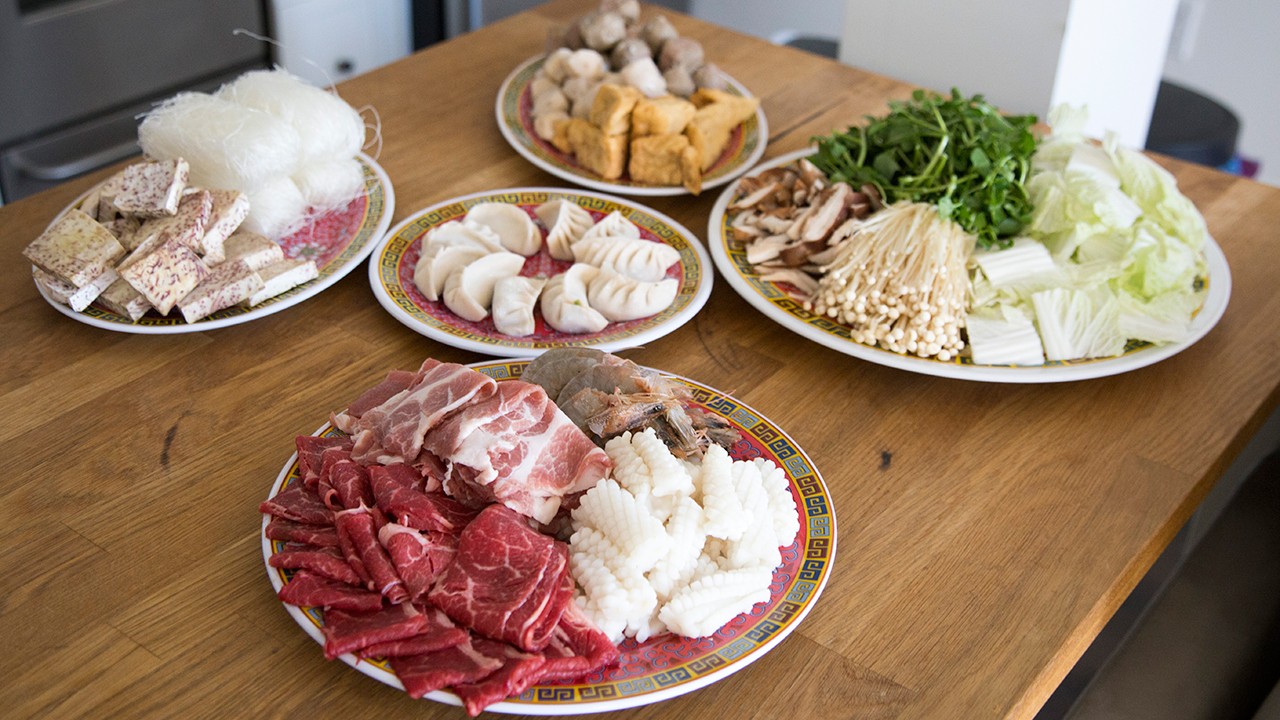Photo via SunnyHills.com
Welcome to #NotAnAd, where we post enthusiastically and without reservation about things we’re obsessed with from the world of food.Taiwanese pineapple cakes hold the secret to prosperity, and it’s right in the name. In the Hokkien dialect of Taiwanese, the word for pineapple, ong lai, is pronounced the same as the phrase “prosperity has arrived.” Because of this, the pineapple is a symbol of luxury and hospitality, and a popular feng shui symbol of wealth, fortune, and prosperity in Taiwan. New homeowners sometimes roll a pineapple into their home to inspire good fortune and luxury. And everywhere, they are passionately consumed, often in the form of a Taiwanese pineapple cake.A traditional Taiwanese pineapple cake is nothing like the sticky, sweet, over-indulgence that is the American upside-down pineapple cake. It’s more tart than cake—similar to a Fig Newton but far superior. It’s a rustic pastry, consisting of flour, butter, egg, sugar, and of course, the ultimate reward of sweetened pineapple jam inside. Traditionally, the cakes were presented as wedding gifts, but now they are usually served with tea to visiting guests, who eat them right out of the package, in generally just two bites, with no silverware required.For first-timers, SunnyHills pineapple cake is a revelation. It is made from 100 percent caramelized pineapple, New Zealand butter, their own organic, antibiotic-free eggs, and Japanese flour. Since each batch is made from locally-sourced pineapple, the flavor of SunnyHills pineapple cakes varies from season to season, becoming sweeter in the summertime due to the intensity of the sun. And you have to eat them seasonally—although prepackaged, the cakes are made without preservatives and don’t last more than a month. I broke up with a boyfriend in college because he gifted my parents the wrong Taiwanese pineapple cakes. I know this seems a bit over the top, but how much did he really love me if all he brought back from his one month trip to Taiwan were some dry-ass, bargain-bin pineapple cakes? As dutiful Taiwanese children, both brought up in traditional families, I assumed he shared the same value of mianzi. There’s no direct English translation for mianzi, but it’s somewhat akin to “keeping up with appearances” and “saving face.” This meant that he should have bent over backward to make an impression on my family and purchased the most extravagantly scrumptious, buttery soft pineapple cakes for their inspection. SunnyHills pineapple cake would have shown how much he cared.
I broke up with a boyfriend in college because he gifted my parents the wrong Taiwanese pineapple cakes. I know this seems a bit over the top, but how much did he really love me if all he brought back from his one month trip to Taiwan were some dry-ass, bargain-bin pineapple cakes? As dutiful Taiwanese children, both brought up in traditional families, I assumed he shared the same value of mianzi. There’s no direct English translation for mianzi, but it’s somewhat akin to “keeping up with appearances” and “saving face.” This meant that he should have bent over backward to make an impression on my family and purchased the most extravagantly scrumptious, buttery soft pineapple cakes for their inspection. SunnyHills pineapple cake would have shown how much he cared.
Advertisement
The SunnyHills cake is better than most because it uses actual pineapple, as opposed to many Taiwanese brands, which cut it with a large dose of cheaper winter melon. Also known as a “wax gourd” (which is an unfortunately appropriate nod to its flavor), the winter melon is a large, relatively bland fruit, that absorbs the flavor of whatever it is cooked with. Basically, the winter melon is like the Prius of the fruit world—functional and efficient, but not exciting in any way. And the mark of an inferior pineapple cake.The SunnyHills pineapples themselves—Cayenne No. 2 variety—are grown in the hills around Bagua Mountain, which gets year-round sun. It’s all part of SunnyHills’s efforts to promote Taiwanese farming and revitalize the broken Taiwanese pineapple industry. The farmers are well paid compared to industry standards, and factory jobs for these handmade pastries have revitalized the economy of the area.
Advertisement

Once, while wallowing in a depressive jet lag after a trip home to Taiwan, I wolfed down four boxes in single sitting—each one containing 20 ingot-shaped pineapple cakes. I had been visiting with my cousins, who seemed to be joyfully living the perfect lives that their parents envisioned for them, which only served to highlight my perceived outsider-ness. As someone raised in a culture obsessed with mianzi, I haven’t always felt I had the freedom to live life purely for the pleasure of it. But awaking in the morning to my cat attacking a pile of littered wrappers, I snapped out of my sleep-deprived, self-indulgent guilt trip and felt a deep gratitude that I wasn’t living a cookie-cutter life. I mean, wouldn’t I rather be the phoenix pineapple in a room of basic apples?